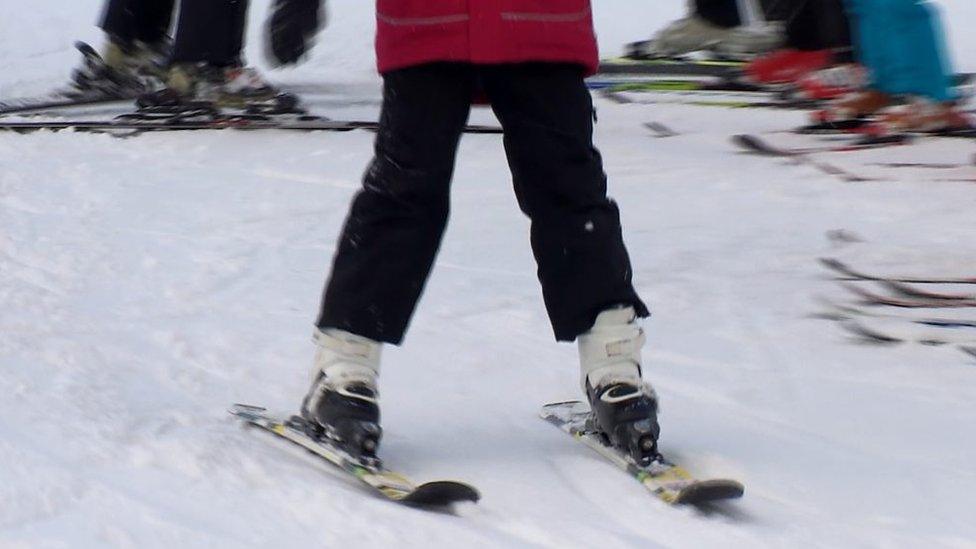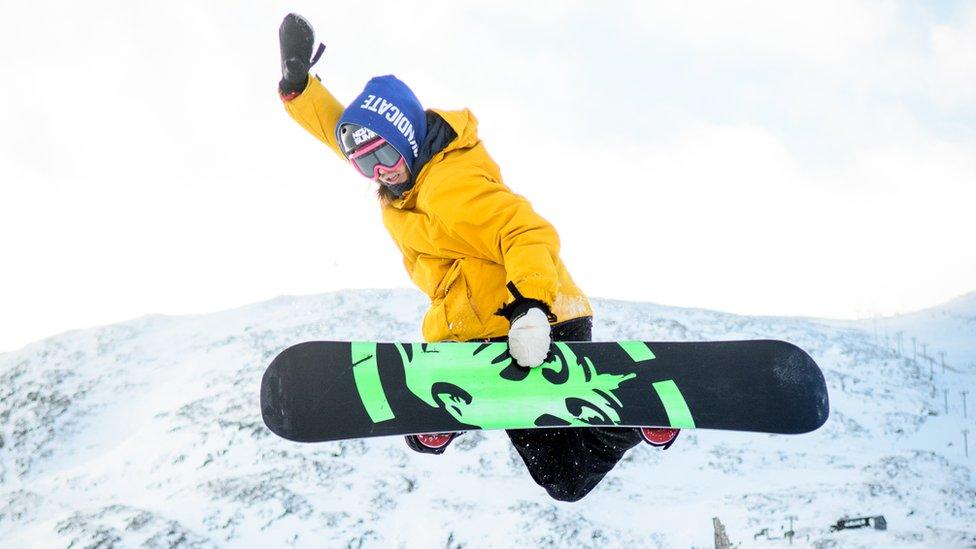'It's complicated': Skiing and Scottish weather
- Published

Scotland's outdoor ski industry has come to expect that some winters will be "great" and others "terrible", the chairman of its national body has said.
Ski-Scotland's Andy Meldrum was responding to a new report on predicted effects of climate change on sports.
The Climate Coalition's report warned that a trend for milder winters could be "potentially devastating" for the Scottish ski industry.
Mr Meldrum said the past 10 winters had created a "complicated picture".
According to a Met Office warning, referenced by the Climate Coalition in its report, Game Changer: How climate change is impacting sports in the UK, external, the Scottish skiing industry could collapse within 50 years as rising temperatures during the winter prevent regular snowfall.
The coalition's report suggested that three of Scotland's main resorts were spending "more than half" of their operating budgets on artificial snow factories after a tough 2016-17 season.
If a trend for decreasing snowfalls continues, "disaster looms, with potentially devastating consequences for local economies in the Scottish mountains", according to the report.
'Stormier and snowier'
Glencoe Mountain, CairnGorm Mountain and The Lecht snowsports centres have invested in snow-making factories.
Mr Meldrum, who is also involved in the running of Glencoe Mountain, said: "In the last decade on the west coast winters have on average been stormier and snowier.
"More days have been lost to wind, but a deeper snow pack has meant a longer season."
Mr Meldrum said that before 2010, Glencoe Mountain had never opened before Christmas for skiing and snowboarding.
Since 2010, the centre has opened six times before Christmas and this season began in November.
Mr Meldrum said: "Scottish resorts continue to have some great winters, some average winters and occasionally - like last season - some terrible winters.
"Some seasons skiing is great at the east coast resorts and not so good at west coast resorts and others it's switched around."
He added: "It just seems to depend on where the prevailing weather patterns are coming from that winter."
- Attribution
- Published7 February 2018

- Published1 February 2018
